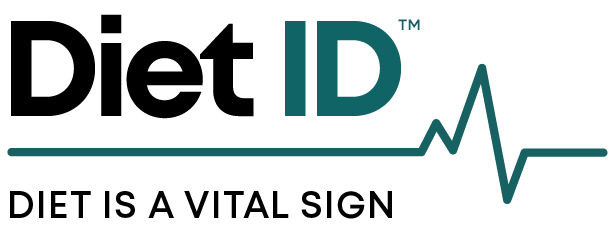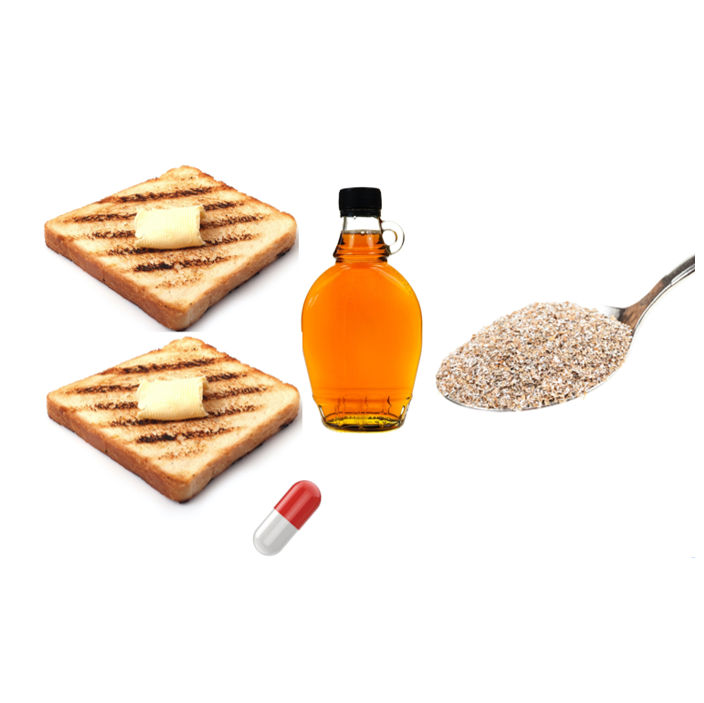A graphic history of US food guides, 1940s to today
There seems to be no greater source of confusion in the world of weight loss than what is the secret sauce for protein, fat, carbs, and calories.
Here’s the lowdown: They all work, and they all fail. The secret is in the execution.
As Diet ID CEO and founder Dr. David L. Katz tells us over and over, there are many ways to eat a healthy diet, and many ways to eat a poor diet. You might be convinced that shunning carbs is the way to go, but a “carb” can be lentils or lollipops – we know they’re not the same. The problem with reducing food to its macronutrients (carbs, protein, fat) or simply energy content (calories) is that food is far more than the sum of its parts. This reductionist approach is dangerous because it’s too easy to lose sight of the value of food for what it is, and focus instead on its carb content or calories per serving.
Here’s an example. Consider these two breakfasts:
Breakfast #1
Breakfast #2
Which one do you think has more calories? More carbs? More fat? The one on the left, with the whole grain oatmeal, raw walnuts, and banana… or the one on the right, with the French toast with butter, maple syrup, multivitamin supplement, and a fiber supplement? As you may have already guessed, both breakfasts have nearly identical nutritional breakdown, even of vitamins and minerals. But common sense (and nutrition science) tells us that the one on the left – based on whole foods – is going to be better for your health than the one on the right – with refined grains, processed fat, and added sugars.
We can create examples of entire diets based on this concept. Consider these two low-carb diet plans, which are actual 3-day menus that we use in the Diet ID platform:
Low carb 3-day menu, quality 10 out of 10
Low carb 3-day menu, quality 1 out of 10
Believe it or not, these two plans have the same number of calories and are nearly identical in carbs, fat, and protein, but you know just with a glance which one is better for your body. Even if you throw supplements on top of the diet plan on the bottom to match the entire nutrient profile of the one on top, we know that there’s no substitute for high quality food.
But the question remains: if these very different diets are nearly identical in carbs, protein, calories, and fat, will one help you lose weight more than the other?
The answer, which may surprise you, is yes. The higher quality diet — even with the same number of calories and same relative proportions of carbs, fat, and protein — is your secret to sustained weight loss. Why?
The answer, in part, is nutrient density (= quantity of health-supporting nutrients per calorie of food. Spinach is high in nutrient density; white sugar is low). It turns out that whole foods prepared deliciously, like the top meal plan, nourishes your body so much better than its counterpart, that it helps it function optimally to reach your optimal weight. Another factor is satiety. Eating whole, natural foods is more satisfying that nutrient-deplete processed foods.
An NIH funded study by Kevin Hall and colleagues published in Cell Metabolism last year illustrates this concept beautifully. In this study, participants were fed one of two different types of diets: a diet composed of mainly whole, minimally processed foods, and another composed of ultra-processed foods. Both diets had the same amounts of sugars, fiber, fat, and carbohydrates. Calories were not restricted in this experiment; even though the meals had the same number of calories, participants were told to eat as much or as little as they wanted. Both groups followed both diets, each for two weeks, and they switched. The results: On the ultra-processed diet, people ate about 500 calories more per day than they did on the unprocessed diet. They also ate faster on the ultra-processed diet and gained weight, whereas they lost weight on the unprocessed diet. Participants, on average, gained 2 pounds on the ultra-processed diet, and lost 2 pounds on the unprocessed diet.
Why else might we experience this phenomenon? Well, psychology may have something to do with it. When we’re making healthy food choices, we also tend to be more careful about our health in general. In other words, there’s a probable collective behavioral effect — when we’re eating healthfully, we typically engage in other healthful lifestyle choices such as increased exercise, drinking less alcohol, and not smoking. This, in turn, tends to result in a cumulative health effect. These healthy behaviors help us sleep better, focus better, and have more energy, intensifying those desired health outcomes, such as weight loss.
Finally, there’s evidence that junk begets junk — in other words, when we consume ultra-processed foods (which are typically engineered to taste so good that you want to keep eating more), it’s easier to overeat. Think about it — it’s a lot easier to binge on bonbons than broccoli.
Whatever the explanation, it’s clear that basing our diet on whole, minimally processed foods — whether you’re in the keto camp or vegan-inclined or somewhere in between — is a main key for successful weight loss.







